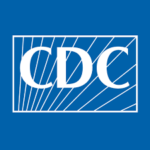The following is the latest health policy news from the federal government for June 23-29. Some of the language used below is taken directly from government documents.
 The White House
The White House
President Biden has issued an executive order on strengthening access to affordable contraception and family planning services for women with private health insurance and through Medicaid, Medicare, and federally supported health programs and to foster research on access. Learn more from this White House fact sheet and the administration’s executive order.
Department of Health and Human Services
- HHS’s Office of the Inspector General (OIG) has posted its final rule implementing information blocking penalties. The rule establishes the statutory penalties created by the 21st Century Cures Act. If OIG determines that an individual or entity has committed information blocking, they may be subject to a $1 million penalty per violation. The final rule does not impose new information blocking requirements, instead incorporating regulations published by the Office of the National Coordinator for Health Information Technology as the basis for enforcing information blocking penalties. To learn more about the final rule, see the OIG’s web page on information blocking.
- A large, nationally representative HHS study has found that in-hospital delivery-related maternal mortality rates improved 57 percent between 2008 and 2021 despite identified increases in severe maternal morbidity. This observational study of more than 11 million hospital discharges, conducted by HHS’s Office on Women’s Health, sought to more clearly define trends and risk factors leading to maternal mortality and morbidity in the U.S. and to improve overall national prevention and treatment efforts. Learn more about the study and its findings from this HHS news release and from the study itself, “Trends in Maternal Mortality and Severe Maternal Morbidity During Delivery-Related Hospitalizations in the United States, 2008 to 2021.”
- HHS has released a draft framework to support and accelerate smoking cessation. This framework will be a roadmap to enhance collaboration and coordination across HHS and with federal and non-federal stakeholders to encourage smoking cessation. Learn more from this HHS fact sheet and this preview version of the framework, which is scheduled for publication in the Federal Register on Friday, June 30. HHS is seeking public input on the framework before it is finalized; comments are due by July 30.
- HHS’s Office of Minority Health has released a series of resource guides to provide guidance on best practices to advance cultural competency, language access, and sensitivity toward Asian American, Native Hawaiian, and Pacific Islander communities in the context of the federal COVID-19 response. Go here to learn more about the agency’s new best practices resource guides.
- HHS and its Substance Abuse and Mental Health Services Administration (SAMHSA) have awarded $31.5 million in behavioral health grants for children, youth and young adults. Of the $31.5 million, HHS awarded $10.3 million to 13 communities under its Linking Action for Unmet Needs in Children’s Health program; $2.3 million for community programs for outreach and intervention with youth and young adults at clinical risk for psychosis; and $18.9 million to 35 community organizations for the enhancement and expansion of treatment and recovery services for adolescents, transitional-aged youth, and their families. Learn more about the purpose of these funding programs and find links to lists of grant recipients in this HHS news release.
- HHS is awarding more than $68 million through cooperative agreements in 29 states and Puerto Rico to support its evidence-based Teen Pregnancy Prevention (TPP) program. The TPP program is a national, competitive grant program that provides funding to replicate and scale evidence-based TPP programs and develop and evaluate new and innovative approaches to improve adolescent sexual health outcomes and promote positive youth development in communities across the country. Through the TPP program, HHS seeks to advance equity in adolescent health by supporting projects that serve communities and populations with the greatest needs and facing significant disparities. Learn more about the program and find a list of grant recipients in this HHS news release.
- HHS’s Office of Minority Health will award $10 million in grants to support up to 10 awards for the development of innovative models for integrating community-based maternal support services into perinatal systems of care. Community-based maternal support services are social and supportive services that address social determinants of health and are provided during pregnancy, labor, and delivery and after delivery by trained individuals. HHS hopes such systems will ultimately improve pregnant and postpartum people’s health outcomes and reduce racial and ethnic disparities. Learn more about this program from this notice of funding opportunity. The deadline for applications is July 18.
HHS Newsletters

- Beginning on October 1, 2023, the Inflation Reduction Act requires Medicaid and Children’s Health Insurance Program (CHIP) coverage and payment for approved adult vaccines recommended by the CDC without cost-sharing. In a memo to state Medicaid programs, CMS provides guidance on the new requirement and its implications for Medicaid beneficiaries, health care providers, and state Medicaid programs. Find that memo here.
- CMS has published a notice advising providers about corrections to certain types of home health claims edits. Find that notice here.
- If the FDA grants traditional approval to drugs that may slow the progression of Alzheimer’s disease, Medicare will cover the drug in appropriate settings that also support the collection of real-world information to study the usefulness of these drugs for people with Medicare, CMS has announced. Specifically, Medicare will cover drugs with traditional FDA approval when a physician and clinical team participate in the collection of evidence about how these drugs work in the real world, also known as a registry. To qualify for Medicare coverage, patients will need to be enrolled in Medicare; be diagnosed with mild cognitive impairment or mild Alzheimer’s disease dementia; and have a physician participating in a registry with an appropriate clinical team and follow-up care. Learn more about Medicare’s plan for paying for approved Alzheimer’s disease drugs from this CMS fact sheet.
- In anticipation of a performance year that begins in July, CMS’s Center for Medicare and Medicaid Innovation has updated the fact sheet for its new, voluntary Enhancing Oncology Model. The new model seeks to build on lessons learned from the agency’s Oncology Care Model, which ran from 2016 through 2022. Learn about the lessons learned from the Oncology Care Model and how they will be incorporated into the new Enhanced Oncology Model from the updated fact sheet. CMS also has announced the organizations that will participate in the program; go here for a link to a downloadable list of participants.
- CMS has issued a proposed rule to update payment rates under its end-stage renal disease (ESRD) prospective payment system for renal dialysis services furnished to Medicare beneficiaries on or after January 1, 2024. CMS proposes raising the ESRD base rate to $269.99, increasing total payments to ESRD facilities by approximately 1.6 percent. The proposed rule also calls for an update of the acute kidney injury (AKI) dialysis rate, updated requirements for the ESRD Quality Incentive Program, and includes several proposals and requests for information related to ESRD payment policies. Learn more about what CMS has proposed for ESRD payments and other policies from this CMS fact sheet and this preview version of the proposed rule. Stakeholder comments are due by August 25.
- CMS has issued a proposed procedural notice outlining a new Medicare coverage pathway to achieve more timely and predictable access to new medical technologies for people with Medicare. Its new Transitional Coverage for Emerging Technologies Pathway for Breakthrough Devices will seek to support both improved patient care and innovation by providing a clear, transparent, and consistent coverage process for certain eligible breakthrough devices that have been authorized by the FDA while maintaining strong safeguards for the Medicare population. Learn more from this CMS news release and this CMS announcement, which includes a link to a Federal Register notice. In addition, the proposed pathway is the subject of the latest article on the CMS blog. Stakeholder comments are due by August 28.
 Centers for Disease Control and Prevention
Centers for Disease Control and Prevention
- The CDC has recommended the use of new respiratory syncytial virus (RSV) vaccines for people ages 60 years and older based on discussions between individuals and their health care provider. The new vaccine is expected to be available in the fall. Learn more from this CDC news release.
- The CDC has updated its guidance on clinical considerations for the prevention and treatment of mpox infections among individuals who are immunocompromised. Find the updated guidance here.
- The CDC has issued a health alert to notify clinicians, public health authorities, and the public about the identification of locally acquired malaria cases in two states, Florida and Texas, and its concern about a potential rise in imported malaria cases associated with increased international travel this summer. To learn more about the CDC’s concern and find recommendations for clinicians, hospitals, and laboratories, see the CDC’s malaria alert.
National Institutes of Health
The NIH has awarded $50 million to launch the Persistent Poverty Initiative, a program that seeks to alleviate the cumulative effects of persistent poverty on cancer outcomes by building research capacity, fostering cancer prevention research, and promoting the implementation of community-based programs. These awards create five new Centers for Cancer Control Research in Persistent Poverty Areas that will seek to advance key priorities of the administration’s Cancer Moonshot: to reduce inequities in the structural drivers of cancer and prevent more cancers before they start by reducing tobacco use and making sure everyone has access to healthy food. Find a list of grant recipients and learn more about the program from this NIH news release.
Medicaid and CHIP Payment and Access Commission (MACPAC)
In 2016, CMS authorized states to direct Medicaid managed care organizations to pay providers according to specific rates or methods. Typically, states use these arrangements, often referred to as state directed payments, to establish minimum payments for certain types of providers or to require participation in value-based payment arrangements. A few states, however, use state directed payments to require Medicaid managed care organizations to make large, additional payments to providers similar to supplemental payments in fee for service. In its new issue brief “Directed Payments in Medicaid Managed Care,” MACPAC describes the history of state directed payment policy and examines the use of these payments by the states.
Government Accountability Office (GAO)
- CMS is not taking advantage of the Affordable Care Act’s creation of the Medicaid Recovery Audit Contractor (RAC) program to identify overpayments and underpayments and recoup overpayments, the GAO has concluded in a new analysis. States may apply for exemption from the program, GAO reports, but CMS has not done a good job of establishing written policies that state the criteria for exemption, has not adequately monitored the expiration of the exemptions it awards, and has not given sufficient consideration to including managed care among expenditures subject to RAC review. As a result, CMS may not be identifying all of the overpayments that could be subject to recoupment. Learn more from the GAO report “Medicaid: CMS Oversight and Guidance Could Improve Recovery Audit Contractor Program.”
- The GAO has examined the challenges critical access hospitals face in providing behavioral health services and shares its findings in its new report “Critical Access Hospitals: Views on How Medicare Payment and Other Factors Affect Behavioral Health Services.”
Stakeholder Events
HHS – Agency for Healthcare Research and Quality – Meeting of the National Advisory Council for Healthcare Research and Quality – July 12
The Agency for Healthcare Research and Quality’s National Advisory Council for Healthcare and Research and Quality will meet virtually on Wednesday, July 12 at 11:15 (eastern). For information about the council, the meeting’s agenda, and how to participate, see this agency notice.

